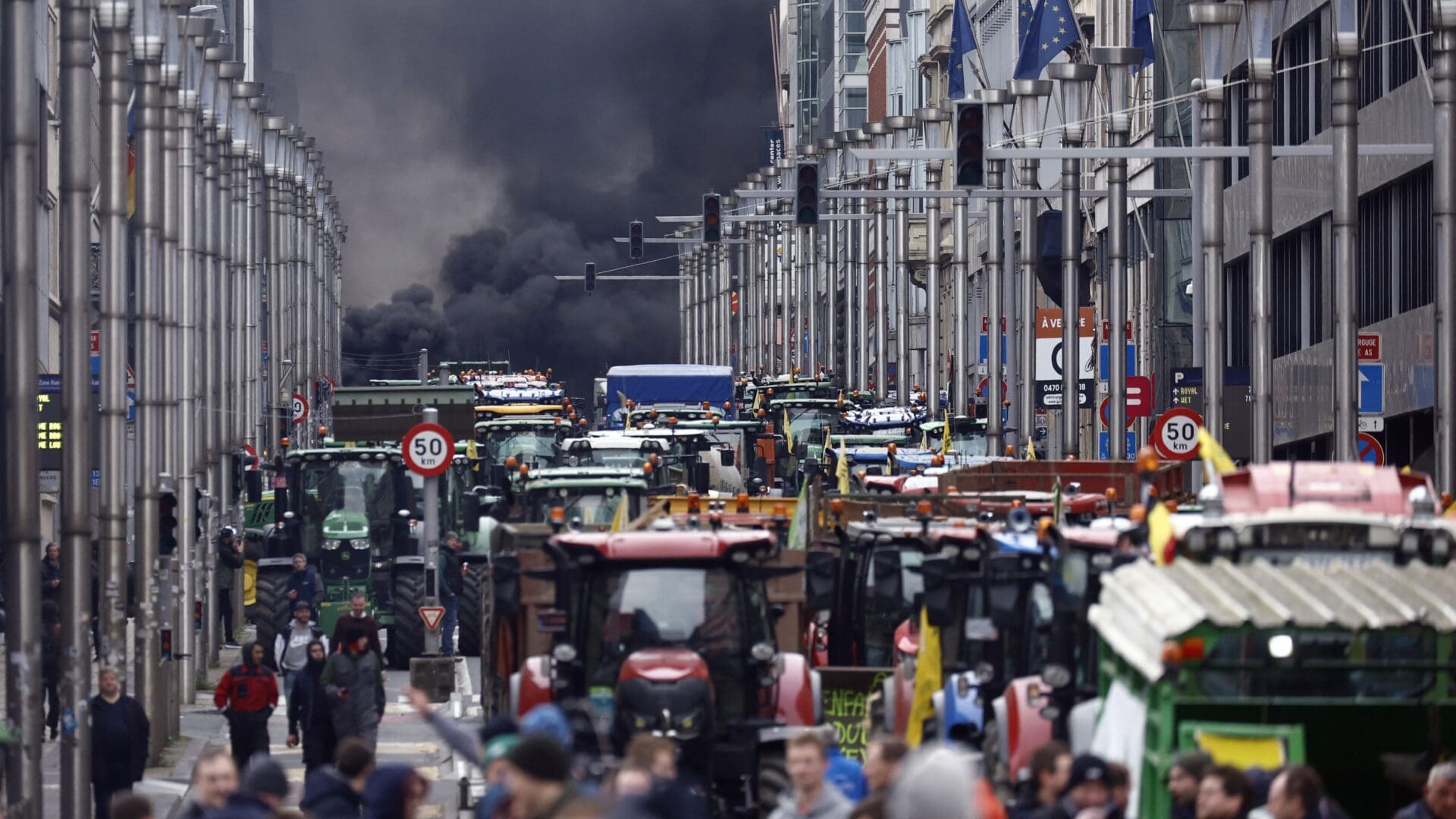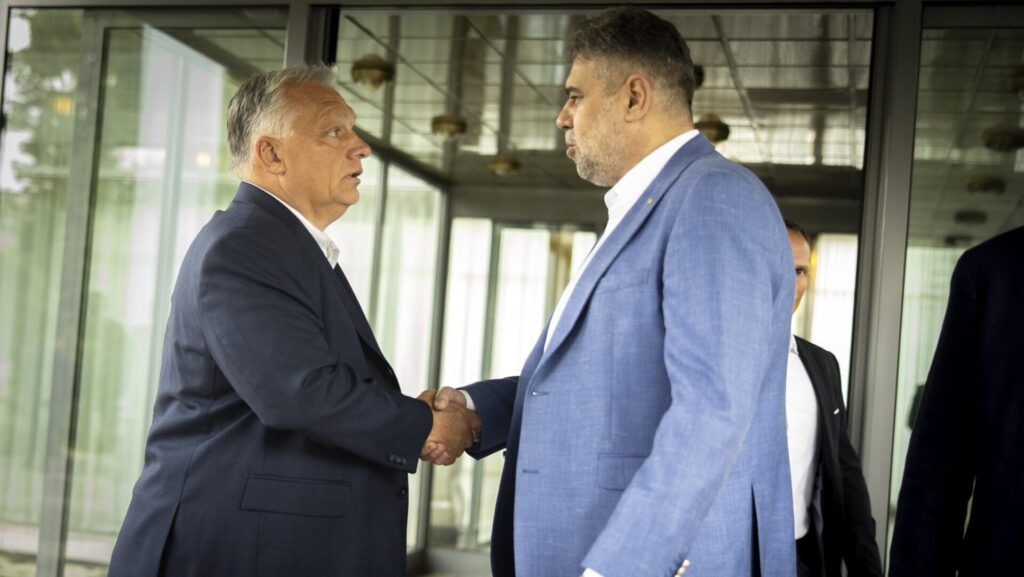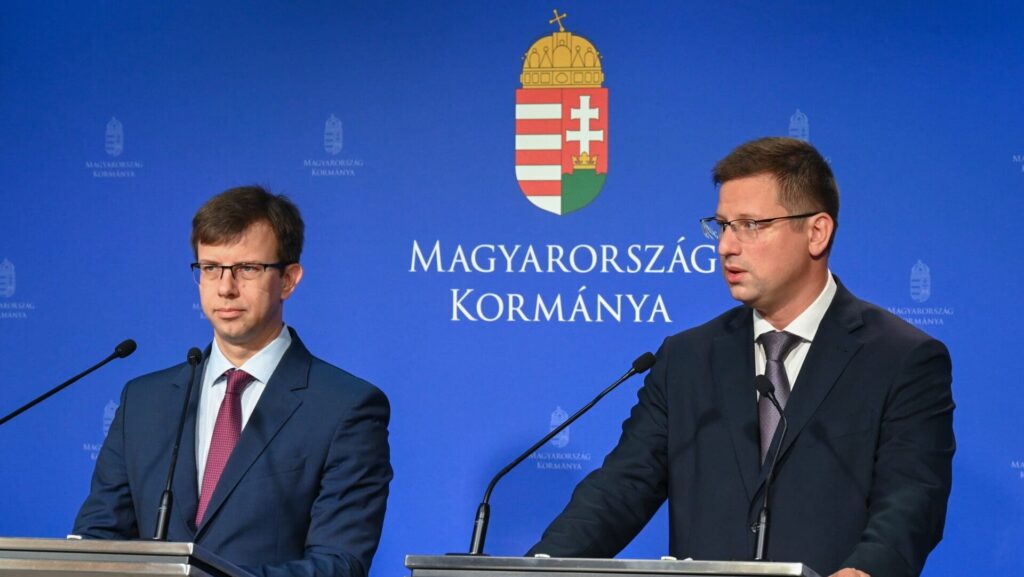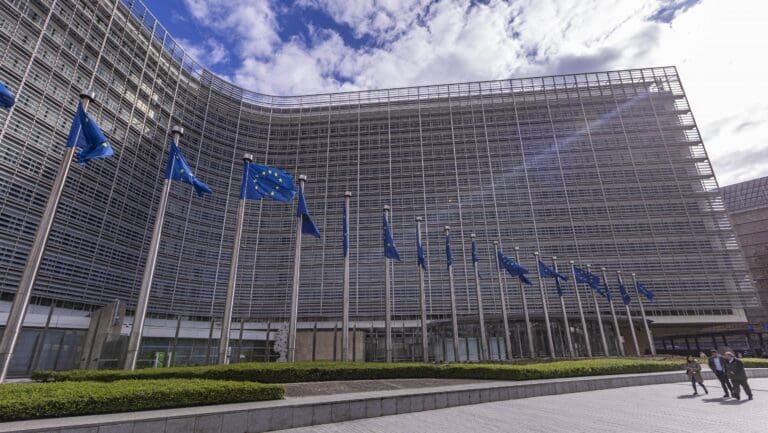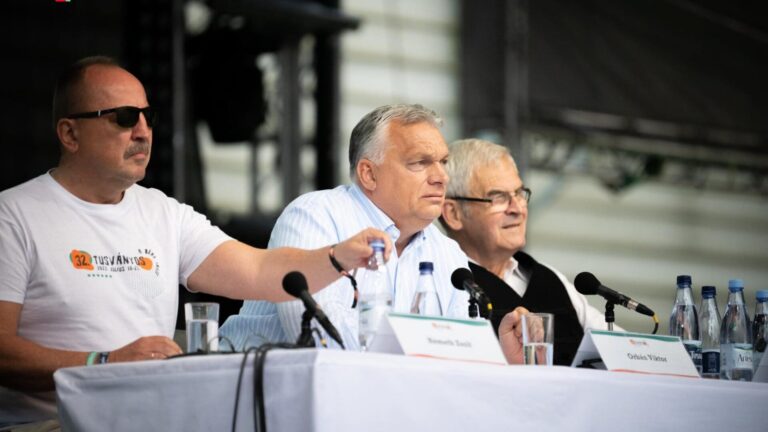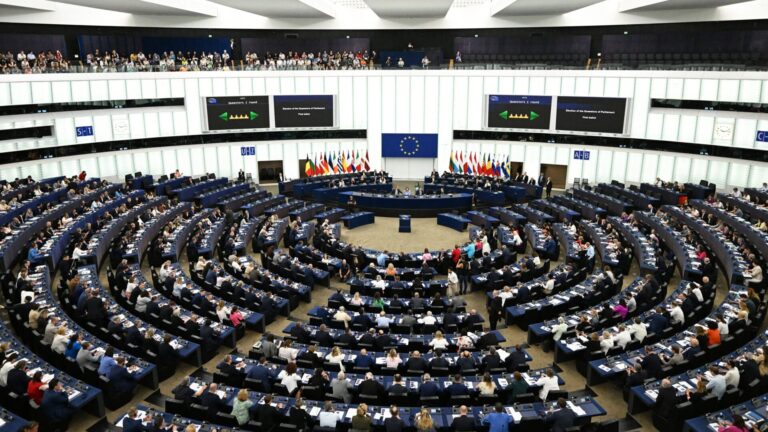French President Emmanuel Macron and Polish Prime Minister Donald Tusk have found an ally in Hungarian Prime Minister Viktor Orbán and Slovak Prime Minister Robert Fico, Italian newspaper Il Figlio reported, as France and Poland have changed their position and would return to agricultural quotas and tariffs against Ukraine.
‘The issue of European farmers was previously primarily addressed by countries bordering Ukraine, which unilaterally imposed national embargoes. However, it has now became a continent-wide source of conflict, with protests by discontented farmers extending far beyond the Ukrainian border,’ the article states.
Il Figlio concludes that as the European elections draw nearer, even the most staunchly pro-Kyiv leaders are acknowledging that
Ukraine’s interests may not outweigh opposition from the agricultural lobby.
There is growing sentiment that borders should be closed to Ukrainian agriculture, particularly grain.
In 2022, the European Union implemented Autonomous Trade Measures (ATMs) aimed at facilitating Ukrainian agricultural exports to the EU by eliminating tariffs and other trade obstacles. However, farmers, particularly those in neighbouring countries such as Bulgaria, Hungary, Poland, Romania, and Slovakia, have expressed apprehensions about the influx of cheaper Ukrainian agricultural products flooding the EU market.
Hungary, along with other frontline nations, has taken the step of implementing an import ban to shield its farmers, thus igniting a fresh conflict between Budapest and the European Commission.
On 20 March, EU negotiators from both the Council of the European Union and the European Parliament (EP) reached an agreement to broaden the list of imported products classified as ‘sensitive’. These include poultry, eggs, sugar, oats, maize, groats, and honey. Furthermore, they decided to activate automatic safeguard measures in case import volumes surpass the average from 2022–23.
According to Euractiv, EU ambassadors made the decision on Wednesday (27 March) to reopen negotiations with the EP regarding the extension of the trade liberalization mandate. The extension of the ATMs until 2025 was approved by the EP last week, despite opposition from several member states.
The coalition of opposing countries, including Hungary and Slovakia, is being led by France, following Macron’s recent change of political direction. In order to protect EU farmers, these countries propose setting the import volume reference period not for the 2022–2023 average, but for the second half of 2021—when Ukrainian agricultural exports to the EU were significantly lower.
Speaking to journalists at the EU Council on Tuesday, French Agriculture Minister Marc Fesneau confirmed
a ‘blocking minority’ of countries were seeking to enhance safeguards to protect the EU’s agricultural sector.
The EU is currently facing immense pressure to reach an agreement before the end of the current session. The draft will now be returned to the European Parliament’s trade committee for discussion on the last day of the session, which is scheduled for 9 April. If no deal can be reached, the EU may revert to the trade framework it had before the outbreak of the war, namely the Deep and Comprehensive Free Trade Area (DCFTA). This would entail the reintroduction of import quotas and tariffs against Ukraine.
European farmers clearly favour the latter option. In the early months of 2024, discontented farmers staged protests across Europe. Their primary demands included the withdrawal of the unfair measures of the Common Agricultural Policy (CAP) and the EU’s Green Deal, and restrictions on Ukrainian imports. In response to the protests, the European Commission made several amendments, yet the issue of Ukrainian grain imports remained unresolved.
Discontented farmers have thus chosen to mobilize once more to assert their interests. The largest demonstration in recent months occurred on Tuesday in Brussels, coinciding with a meeting of EU agriculture ministers. Demonstrators clashed with police and set tires ablaze in the Belgian capital. According to press reports, at least 900 tractors took to the streets of Brussels, effectively paralyzing the city. Alongside the demonstrations in Brussels, protests also unfolded in Madrid and along the German–Polish border.
The primary issue for farmers is the persistent feeling of being disregarded by EU decision-makers,
who appear to overlook their demands and requests. ‘We are getting ignored,’ said Marieke Van De Vivere, a farmer from Belgium’s Ghent region to The Guardian. She said ministers should ‘be reasonable to us, come with us on a day to work on the field, or with the horses or with the animals, to see that it is not very easy…because of the rules they put on us.’
Remix News & Views on Twitter: “🇧🇪🇪🇺🚜‼️ Water cannon vs. manure cannon in BrusselsPolice are battling farmers outside the European Commission, where hundreds of tractors have descended to protest against a meeting of European agricultural ministers.#AgriculteursEnColere #FarmersProtest #protestrolnikow pic.twitter.com/rrHxhMlGU8 / Twitter”
🇧🇪🇪🇺🚜‼️ Water cannon vs. manure cannon in BrusselsPolice are battling farmers outside the European Commission, where hundreds of tractors have descended to protest against a meeting of European agricultural ministers.#AgriculteursEnColere #FarmersProtest #protestrolnikow pic.twitter.com/rrHxhMlGU8
Viktor Orbán visited the protesting farmers in Brussels back in February. The Hungarian Prime Minister said at the time: ‘new leaders and a new elite are needed in Europe, because at present the voice of the man in the street is not taken seriously, and this is a democratic deficit.’ He emphasized that the European Union does not sufficiently respect the fact that agriculture is a crucial part of the European economy. In many countries, regulations unfavourable to farmers have been introduced, making their situation more difficult.
As a solution to the problem, PM Orbán proposed a complete change of leadership in Brussels, asserting that ‘these leaders will never make decisions favourable to farmers.’
Related articles:

